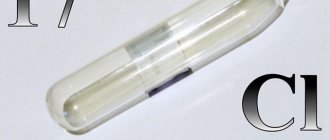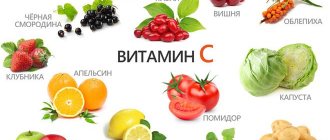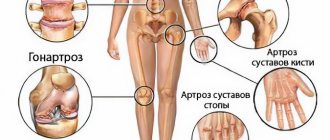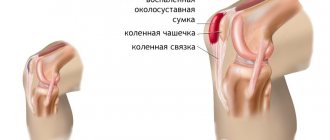Causes of food poisoning
All food poisoning is caused by bacteria. Once in food products, bacteria multiply in them. The cause of poisoning is different types of opportunistic microbes. They are quickly and easily defeated by the immune system of a healthy body, and in the external environment they die under the influence of sunlight and high temperature.
As they multiply in products, they release toxic substances. Therefore, such poisonings have another name - food poisoning. When poisoning with spoiled food products, for example, cake or pastries, bacterial growth occurs and the release of poisons ingested with food occurs. It continues in the intestinal cavity, causing signs of intoxication.
Poisoning occurs most often in the warm season, when food is kept warm for some time. This happens in the following cases:
- Failure to comply with the rules for preparing and storing food.
- Getting germs into food from dirty hands.
- Spread of infection by flies feeding on human food.
There are products that, after 3-4 hours of violation of the temperature regime of storage, can cause poisoning. You need to be very careful with the following products:
- Pastry creams, cakes.
- Cold smoked meat products, lard, boiled meat, fish.
- Mayonnaise, cheeses, chips and pizza.
- Kvass from a barrel.
When eating the same dish, there may be a situation where one person gets poisoned, while another does not notice even the slightest symptoms. The reason is the uneven distribution of bacterial colonies throughout the entire volume of the dish. Accordingly, it is easier for someone who eats a fragment with the largest amount of bacteria and their toxins to get poisoned.
Causes
Most opportunistic bacteria exist in soil, water and in the intestines of those who have been poisoned or are carriers of the disease. If the rules of hygiene, preparation, and storage of food are violated, these microorganisms enter the human body.
The main causes of poisoning are:
- infection with dirty hands while eating or preparing it;
- ingestion of food from catering workers suffering from staphylococcal infections;
- entering the body with non-disinfected water;
- violation of rules for storing or selling products.
Food poisoning is a “dirty food” disease. These toxic infections are characterized by seasonality. They occur more often in summer and autumn.
How food poisoning develops
From the moment a spoiled product enters the intestines until the moment symptoms appear, no more than a day passes. On average, the incubation period is several hours.
The initial stage occurs in the form of acute indigestion. When food poisoning occurs, the following phenomena occur:
- The appearance of high body temperature.
- Hypotension (low blood pressure).
- Nausea and reflex contraction of the abdominal muscles and diaphragm, leading to vomiting.
- Frequent bowel movements and loose stools. This clinic is a consequence of impaired absorption of fluid in the large intestine.
- Severe pain and intestinal spasms are the result of the action of toxins on the mucosal cells in the gastrointestinal tract.
- The patient's body experiences a lack of nutrition and dehydration, and a violation of carbohydrate and protein metabolism occurs. In this state, it becomes increasingly difficult for the body to fight poisoning.
If at this stage the patient is not provided with medical assistance, then further development of poisoning will lead to a serious loss by the body of mineral substances responsible for conducting nerve impulses. Convulsions begin, disruption of brain activity up to loss of consciousness. Foodborne illness can be contagious to other people, but only through food.
First aid
Gastric lavage is considered an emergency measure in case of food poisoning. Often first aid has to be provided at home, so gastric lavage is performed using a tubeless method. To do this, drink two or three glasses of water and stimulate the urge to vomit by pressing on the root of the tongue. The procedure must be repeated several times until clean wash water is obtained.
In case of food poisoning, immediately after cleansing the stomach, it is necessary to begin replenishing lost fluid. For mild intoxication, you can drink lightly salted water or unsweetened tea. But, if frequent vomiting does not allow the liquid to be absorbed, an intravenous infusion is required. Seeing a doctor is the first thing to do in case of severe food poisoning.
The intake of liquids must be combined with the use of sorbents. A single dose of activated carbon for food poisoning is 1.25–2 grams, it should be taken in the form of a mash mixture. To prepare it, the tablets need to be crushed and mixed with boiled water.
First aid for food poisoning
Types of food poisoning
The following types of food poisoning are distinguished:
- Toxicinfections of mixed nature (products contaminated with enterococci, E. coli).
- Specific toxic infections: botulism and salmonellosis. Botulism can survive in canned food. Even stewed meat can cause poisoning. The consequences of such intoxications are extremely severe, including death.
- Intoxication of non-microbial origin. They occur when consuming inedible mushrooms, poisonous berries, and garden plants grown with an excess of synthetic fertilizers. This also includes poisoning by products that were stored in low-quality plastic containers and saturated with toxic plastic (polystyrene, polyvinyl chloride).
Related article: Green stool in an adult - why?
How to get sick quickly is a pressing question for many
Many schoolchildren and students would like to get sick quickly. Only a few know how to do this. You probably feel shocked when you hear that someone suddenly wants to get sick. After all, everyone understands perfectly well that health is the most valuable resource. Everyone values it, everyone takes care of it. But there are also people who would like to get sick.
As a rule, people want to get sick:
- schoolchildren who want to avoid writing a test;
- students, students who prefer to walk rather than study;
- office employees who are tired of the everyday hustle and bustle and overwhelming work;
- housewives who want to take a break from routine activities and just lie in bed for a couple of days.
That is, the motive can be anything. But, as a rule, for many, illness is an opportunity to have a good rest.
Acting skills alone are not enough to solve this issue. This means that you need specific symptoms to stay home and go on sick leave. It turns out that you have to get sick in reality. So many people ask the question: how to provoke a painful condition, how to get sick while at home.
Of course, thoughts are material, but until the thought comes to life, you have to wait a lot of time.
In this case, it is better to take specific measures that will help you get sick if you really really want it.
The main thing is not to overdo it, as you can develop a chronic illness with serious consequences. You don't want this, do you? Knowledge on the topic “How to get sick quickly” will help you avoid terrible mistakes.
What you definitely shouldn't do:
- Go outside with a wet head if there is severe frost.
- Walking in winter without a hat.
- Spoil the stomach by eating spicy and salty foods in order to cause poisoning.
First, you risk causing meningitis, which can be fatal. Secondly, it will take several months to treat a stomach with gastritis or, worse, an ulcer. The consequences of unreasonable actions can haunt you for years. Keep this in mind when you decide to stay home sick.
How to get sick quickly: methods and tips
We suggest considering the main ways to get sick in 5 minutes for a whole week:
- Set the plastic on fire and inhale the fumes. This will give you a severe cough. It won't be easy to cure him. In addition to coughing, your temperature will probably rise to 39 degrees. If something goes wrong, if you overdo it, you can get carbon monoxide poisoning, which can also be fatal.
- Start doing physical exercises. Intense exercise will make you sweat. In this “wet” state, feel free to go outside, it’s cold frost. You will definitely get a cold with complications or the flu. It is possible that you will have pneumonia.
- Cause poisoning. Eat spoiled foods, drink stale juice. In addition to poisoning, gastritis, stomach ulcers and other problems with the gastrointestinal tract may appear.
- Drink 3 cups of coffee and seek help from a doctor. Having measured your blood pressure, he will note a significant increase. It is possible that you will be released from school or work for a week and a half. If the heart is weak, then it will suffer even more from such attempts to get sick.
- Use another cooling procedure: eat a pack of ice cream, then chew mint gum and eat a second pack of ice cream. Your throat will quickly turn red.
- Eat the slate. Your temperature will rise. The main thing is to have time to call an ambulance.
- Drop iodine onto sugar and eat it. As a result, you will get a very high temperature. The saddest result is resuscitation.
- Go out into the cold, take 60 deep breaths. And your throat will never be the same. At a minimum, it will turn red. If you're unlucky, you'll die of pneumonia.
- When it's already cold outside, take a swim in an open pond.
- Wash down the persimmon with milk. You will be assured of disastrous results.
- Find someone in your environment who has the flu or a cold. Try to get infected from him. Have the patient sneeze or cough on you. Of course, the result may be completely unpredictable.
It’s clear that deceiving loved ones and relatives is very bad. But it’s even worse to experiment with your body. When you don’t want to injure your body, you can simply put a thermometer on the battery, put it in hot water, shake it well upside down - and a high temperature will definitely appear on it.
Final Thoughts
When you start to think that it would be good to get sick, you should consult a psychotherapist or psychologist. An emotionally healthy person does not have such reasoning. I would like to believe that you will not abuse your body and that all the advice that was presented above was not taken seriously. After all, joking with health is, at the very least, stupid.
If you are tired of school, university, college, office work, if you no longer have the energy to do household chores, talk openly with your parents, boss, spouse about the fact that you need a rest.
Adequate people understand perfectly well that an exhausted person will sooner or later get sick himself, without additional stimulation. And then you will be upset that all your plans have been disrupted.
Asking for time off is smart and safe.
It is important to realize that those who rest well work well. There is absolutely no need to expose your body to stress. Your stupid actions can lead to irreparable consequences.
In addition, a lot of effort and money will be required to restore health after an illness. If you are ready to spend money, if you do not mind your health, take risks. But it's better to just take care of yourself! Appreciate life.
And then you will be able to achieve serious goals and success.
Source: https://www.stylenews.ru/eda-fitnes/kak-bystro-zabolet-aktualnyy-vopr/
Signs of poisoning
For food poisoning, the main symptoms are:
- Nausea and vomiting are the first characteristic signs of foodborne illness in adults. The body gets rid of toxins, and the first portion of vomit always contains remnants of undigested food. But even when the stomach is already empty, with foodborne toxic infection, vomiting does not stop immediately. Vomit contains mucus, gastric juice, sometimes bile and intestinal contents.
- Hyperthermia (high temperature). Salmonellosis, botulism - these diseases are classified as food poisoning and occur with temperatures up to 40 degrees. There is a tremor of the whole body, the patient freezes. Such poisoning can easily be confused with an intestinal infection, but these are different things. In case of poisoning, the value of body temperature depends on the type of microorganisms and the volume of toxic substances entering the blood. In cases of mild poisoning, hyperthermia may not occur.
- General malaise, headache and aches throughout the body, like the flu. Therefore, food poisoning can be mistaken for intestinal flu.
- Severe abdominal pain, intestinal cramps.
- Fall in blood pressure. Under the influence of toxins, the walls of blood vessels lose their tone. Oxygen starvation occurs. This condition is especially dangerous for the brain. It is fraught with dizziness and fainting.
- Loose stools, sometimes mixed with blood. Blood in the stool is a symptom of necrotic changes in the intestinal wall.
- General dehydration. The skin becomes pale and dry, the patient suffers from constant thirst and dizziness.
Food poisoning during pregnancy and breastfeeding
Pregnant women have an increased susceptibility to toxic infections due to the decreased immunity characteristic of this period. There is a danger of a more severe course of food poisoning and a negative effect on the fetus. If pregnancy is accompanied by toxicosis, this further aggravates the situation.
Enterotoxins in their chemical structure are proteins or polypeptide chains with significant molecular weight. They cannot cross the placental barrier and directly affect the fetus. But there is a possibility of their influence through the mother’s body. Dehydration and impaired microcirculation that occur with food poisoning during pregnancy negatively affect the fetus.
It is possible to breastfeed a child if the mother is mildly intoxicated. However, a woman must carefully observe the rules of personal hygiene. Restrictions on breastfeeding arise only in more severe toxic infections, when hospital treatment of the victim is required.
In case of food poisoning in pregnant or nursing mothers, there are restrictions on the drugs used for treatment.
- Among the enterosorbents allowed for use are Polysorb MP, Enterosgel (gel or regular paste), Smecta, Neosmectin, Polyphepan, Filtrum STI. The use of Enterosgel in the form of a sweet paste and Whitesorb is contraindicated.
- Pregnant women should not use Ersefuril, but nursing women may need short courses of treatment with this drug.
- Antispasmodics and enzyme agents are used only as prescribed by a doctor.
Among the medications used to replenish fluid deficiency, there are no drugs prohibited for use.
What can pregnant women eat after food poisoning? On the one hand, it is necessary to follow a diet to restore the functions of the stomach and intestines, and on the other hand, a varied diet is required for the full development of the fetus. A reasonable combination of permitted products helps you choose the right diet:
- low-fat meat or fish broths;
- boiled mashed porridge;
- vegetables and herbs in the form of souffles, purees, puddings;
- lean meats or fish;
- eggs;
- fermented milk products, cottage cheese;
- mashed berries, baked apples, dried fruit puree;
- honey, jam, preserves, marmalade;
- dried white bread, crackers;
- savory cookies, biscuits;
- natural butter;
- fruit drinks, jelly, pureed compotes;
- rosehip decoction, diluted fruit juices;
- weak tea with lemon, coffee with milk.
For a pregnant woman, the rich content of liquids, vitamins and microelements in a gentle diet is of particular importance.
Diagnosis of food poisoning
Symptoms of food poisoning are similar to those of other diseases (bacterial and viral intestinal infections). But in case of poisoning, poor quality food always appears, and the infectious lesion immediately begins from the intestines.
The speed of development of symptoms does not leave doctors time to determine the exact cause of the disease, so treatment begins on the same day the patient is poisoned. In case of mass cases, when several or many people are poisoned, an epidemiological study is carried out to determine an accurate diagnosis.
If the patient is admitted to the hospital, a standard list of tests is performed - a general blood test, a general urine test, and bacteriological culture of stool. Sometimes ultrasound diagnostics of internal organs is performed if there is a suspicion of severe damage to them by toxins.
What drinks can and should you drink?
It's better to drink any available drink than not drink at all.
The main danger of poisoning is severe dehydration, since in the process of vomiting and diarrhea the victim loses not only the supply of fluid, but also the salts and minerals necessary for normal life.
And the key task of those helping is to quickly replenish the deficiency of moisture and nutrients. Special preparations, which in medical parlance are called oral rehydration solutions, are remarkably helpful in this regard.
They can be easily found in any pharmacy:
- Regidar;
- Regidron;
- Hydrovit;
- Regidron Bio;
- Humana Electrolyte;
- Enterodesis.
The most affordable, including cost, is Regidron, which is an odorless white powder. It is produced in paper bags that are easy to tear in any conditions. The packaging also contains brief instructions for preparing the solution.
But how to drink Regidron in case of poisoning is determined in each specific case: the stronger the intoxication, the more intense the vomiting and diarrhea, the more and more often you need to drink this solution. There simply cannot be an overdose with pathological losses of fluid and salts.
A new version of the drug with flavoring and sweet taste
ATTENTION! According to the latest WHO data, children under one year of age should not be given Regidron for poisoning and other conditions associated with a lack of fluid in the body. It is also advisable for parents to know that the taste of this solution is quite specific, so if possible it is better to find and purchase sweet preparations designed specifically for children. For example, Humana Electrolyte or Hydrovit. Yes, their price may be much higher, but you won’t have to dance with a tambourine on a sick child or force him to drink nasty water.
Treatment of poisoning
For any disease, it is more effective to eliminate the cause than to treat the consequences. Therefore, at the first signs, the patient needs to rinse his stomach.
After cleansing, you need to start using enterosorbents - drugs that bind toxins in the intestines. These include: Activated carbon, Polysorb, Enterosgel, Polyphepan, Smecta, Laktofiltrum, Enterodes. They can be taken only after vomiting has stopped and separately from other medications (the interval should be at least 2 hours).
Activated carbon
Polysorb
Enterosgel
Polyphepan
Smecta Lactofiltrum Enterodes
Diet. On the first day of illness you need a fasting diet, starting from the second day - a gentle diet. This is mainly rice, rice water, biscuits, crackers, and a complete avoidance of fatty foods. For more information about what diet is required for the recovery period, you need to ask your doctor. Doctors usually do not refuse such a certificate to patients.
Related article: What happens if you eat a poisonous buttercup? Consequences for the body
Symptomatic therapy. It is selected by the doctor based on the symptoms of the disease. The prescribed drugs do not cure the poisoning itself, but help relieve symptoms. For severe abdominal pain and cramps, antispasmodics (no-spa, papaverine) are indicated. To reduce the irritating effect of toxins on the intestinal wall, coating agents and bismuth preparations are prescribed. This will help restore the mucous membrane.
Rehydration therapy - restoration of fluid and electrolytes. For these purposes, such products as Regidron, Normohydron, Gastrolit, Orsol, Reosolan are used. Medicine for dehydration is taken orally in small portions at short intervals (about 1 tablespoon every 10 minutes).
Infusion therapy is carried out in situations where it is impossible to take the drug orally or it does not help. For example, with uncontrollable vomiting and persistent diarrhea, it is better to pour electrolyte solutions (Trisol, isotonic sodium chloride solution, glucose and others) directly into the blood. For these purposes, the patient is placed in a hospital. This condition can be complicated by sepsis at any time. It is important not to miss this moment in order to prescribe antibiotics to the patient in a timely manner.
Trisol
Sodium chloride Glucose
Antiemetic and antidiarrheal therapy. Prescribed by a doctor when nausea and diarrhea do not stop after the stomach has been completely emptied and intoxication has been removed. Drugs - Motilium, Loperamide.
Motilium Loperamide
After stabilization of the patient’s condition, probiotics are prescribed (Bifidumbacterin, Lactobacterin, Linex), and enzymes will be needed to normalize the digestive processes.
Bifidumbacterin Lactobacterin Linex
Treatment
Treatment for mild food poisoning is carried out at home. In more severe cases, hospitalization in a hospital is required.
In case of acute food poisoning, treatment begins with gastric lavage. It is carried out with a 0.5% solution of baking soda, 0.1% or potassium permanganate. If a person suffers from a stomach ulcer, coronary heart disease, or has a significant decrease in blood pressure, then lavage is not performed.
The main directions of treatment for food poisoning are as follows.
- Replenishment of fluid deficiency and detoxification of the body, which is carried out with water-salt solutions. The route of administration (oral or intravenous) depends on the severity of food poisoning. Taking sorbents also reduces intoxication.
- Restoration of damaged functions of the stomach and intestines. Why are astringents used to reduce irritation of the mucous membranes, as well as intestinal aseptics that suppress the activity of bacteria? After a course of treatment with these drugs, probiotics and enzymes are prescribed to reduce gastric secretory insufficiency and normalize intestinal microflora.
- Antibacterial therapy. It is used only for severe forms of the disease, when the duration of fever exceeds two days, with severe intoxication and diarrhea. However, if food poisoning occurs in children, the elderly, or patients with immunodeficiency, then antibiotics may be prescribed for a less severe clinical picture.
How to treat poisoning at home
At home, you can rinse your stomach with boiled water at a temperature of 20-25 degrees. The patient should drink 500-1000 ml and induce vomiting. Repeat the manipulation until the gastric contents become clear; clear water should come out with vomiting.
Next, you need to give the patient mineral water, but not soda, or rehydron. Drink frequently and in small portions to prevent dehydration.
But you can take therapeutic measures yourself at home only in case of mild poisoning. If the condition continues to worsen, it is necessary to stop home treatments and consult a doctor. Only a specialist can decide what medications are needed for severe poisoning.
In case of poisoning, you should not use any means to stop vomiting and diarrhea. In case of poisoning, the symptoms are protective for the body and help to get rid of toxins. Without diarrhea and vomiting, intoxication worsens.
On the first day, the patient should not be allowed to eat. On the second day you can switch to a gentle diet. When the vomiting and diarrhea stop, you need to take a course of Linex, Bifiform or Acipol to restore the intestinal microflora.
Bifiform
Acipol
A gradual return to a normal diet should be accompanied by taking enzyme preparations (Mezim, Festal, Pancreatin tablets ).
Mezim
Festal
Pancreatin
Treatment of mild forms of coconut poisoning is described. The liquid found inside this fruit acts as a rehydration agent.
For an adult, food poisoning can be cured at home, but this should not be done if the victim is an elderly person or a pregnant woman, since they can only be treated under the supervision of a doctor. The same goes for young children.
First aid for poisoning
The main task facing a person with food poisoning is removing toxins from the body. It is also necessary to prevent a serious disturbance of the water-salt balance.
First aid comes down to the following actions:
- Gastric lavage. The patient should drink as much water as possible, after which he is induced to vomit. The procedure is repeated until the liquid coming out of the stomach becomes absolutely clear. If possible, replace water with a weak solution of potassium permanganate. This allows for disinfection of the gastrointestinal tract. The solution should have a pale pink color. Manganese must be thoroughly dissolved and strained through gauze folded in 4 layers. You can also prepare a soda solution (take a teaspoon of soda per liter of water). If the vomit suddenly becomes black, stop rinsing the stomach. This sign indicates gastric bleeding, which requires emergency hospitalization. This complication often occurs in people with stomach ulcers or gastritis.
- Colon cleansing. If a person does not develop diarrhea, they need to take a laxative or do an enema. This will remove toxins from the intestines. For an enema, use plain water. It should be boiled and at room temperature. The enema is also repeated several times. We need to ensure that the waters become clean.
When first aid is provided to the patient, you can offer him folk and pharmacy remedies.
Food poisoning in pregnant women
During pregnancy, the sensitivity of the gastrointestinal tract increases. A woman needs a complete protein diet, but in case of poisoning it is temporarily contraindicated.
Some toxins can cause poisoning in the unborn child through the placenta. The most dangerous are mushroom toxins. With mixed nonspecific toxic infections, toxins do not reach the fetus, but they still pose a danger to it:
- In case of poisoning in the 1st trimester of pregnancy, there is a high probability of miscarriage or intrauterine fetal death.
- If a woman was poisoned in the last trimester, frequent vomiting can provoke contractions and premature birth.
- Poisoning can lead to bleeding from the vessels of the placenta.
- With oxygen starvation, the fetus can develop various brain pathologies, and in case of severe oxygen starvation, the fetus dies.
Self-medication is contraindicated in pregnant women! Treatment at home is only possible if the woman’s condition is mild, but still under the supervision of a doctor for as long as the painful condition lasts. Gastric lavage cannot be done without medical personnel.
Be careful with medications. During pregnancy, you can safely use only activated carbon tablets. All other medications are to be taken in consultation with the doctor. Many medications are contraindicated for pregnant women.
Related article: Green stool in an adult - why?
It is important to help the pregnant woman remain calm and prevent the development of a stressful condition.
If a pregnant woman is treated in a hospital, standard tests are performed and an additional ultrasound of the fetus is performed.
Recovery
After food poisoning, the phenomena of asthenia in the body often persist, manifested by increased fatigue, loss of the ability for prolonged mental or physical stress. The gastrointestinal tract has not been completely restored. A patient with residual symptoms of the disease should be under the supervision of a local physician.
Among the rehabilitation measures for food poisoning are:
- mode;
- pharmacotherapy;
- dietary nutrition;
- physical therapy and physiotherapy.
Need to spend more time outdoors. It is advisable to avoid mental or physical overload and devote sufficient time to sleep - at least 8 hours a day. It is recommended to continue taking probiotics and enzymes. The methods of physical therapy and physiotherapy used depend on the extent of damage to the gastrointestinal tract. They are prescribed by a rehabilitation doctor or physiotherapist.
The duration of the recovery period is determined by the severity of the food poisoning suffered and the patient’s functional reserves. Typically, rehabilitation lasts from three days to six weeks.
What can you eat after food poisoning?
A gentle diet limits the load on the gastrointestinal tract, accelerates recovery processes, and stimulates the immune system. It provides an increased content of fluids and vitamins, with a moderate reduction in the amount of fats and carbohydrates.
When the condition of patients with food poisoning improves, fermented milk products - kefir, fermented baked milk - are added to the diet. You can also eat:
- unhealthy bread or other baked goods;
- Lenten cookies;
- scrambled eggs;
- some vegetables - potatoes, carrots, beets, zucchini;
- pureed berries, jam, honey;
- marshmallows, marmalade, pastille.
A gradual expansion of the diet for impaired stomach and intestinal functions is the main method of rehabilitation for toxic infections.
During the recovery period after food poisoning, you should not eat raw vegetables, spicy, fried or smoked foods. Exclude from the diet fresh baked goods, fatty fish and meats, sausages, pickles, canned food, and marinades. You can't drink alcohol. Products must be pureed and boiled. Meals are split, at least six times a day. Patients adhere to this diet for two to five weeks, followed by a gradual transition to a normal diet.
Consequences of food poisoning
If food poisoning is prolonged, the patient may experience complications that are very difficult to cure:
- Intestinal dysbiosis is the death of beneficial microflora.
- Blood poisoning. When the immune system is weakened (which is facilitated by an unhealthy lifestyle, alcohol, smoking), the intestinal wall ceases to protect against bacteria entering the blood. Microbes cause sepsis, a life-threatening condition.
- Infectious-toxic shock. It can be triggered by the entry into the blood of a large number of toxins, which cause paresis of the vascular walls up to general cardiovascular failure.
- Hypovolemia and hypovolemic shock. Due to a decrease in circulating blood volume, cardiac output decreases, which affects all tissues of the body. An acute condition - hypovolemic shock - is life-threatening and requires urgent medical intervention. Breathing problems, dizziness, and possible loss of consciousness occur.
How to eat properly after poisoning
The day after poisoning
The amount of food eaten should be minimal. It is advisable to refrain from eating during the first day after poisoning. During this period, you need to drink a lot to avoid dehydration. This can be ordinary boiled water, rosehip infusion, green tea, mineral water, weak tea with a spoon of sugar, or rice infusion. You can eat some homemade crackers. It should feel much easier by evening. You can drink low-fat chicken broth or have a snack with liquid porridge cooked in water (rice, buckwheat, semolina). Mashed potatoes without butter and milk are allowed in small quantities.
Rice has adsorbent properties, that is, it absorbs excess gases and toxins from the intestines. Therefore, during and in the first days after poisoning, it is recommended to eat lightly salted rice porridge.
If you are worried about diarrhea, then you can drink decoctions with astringent properties (decoction of rose hips, blueberries, black currants, St. John's wort).
In the first days after poisoning
Food should predominantly have the consistency of puree or porridge. On the second day, you can eat a small amount of chicken meat, steamed cutlets, light lean dishes that will not overload the digestive system. It is recommended to follow the diet for three days. Food should only be eaten boiled. It is recommended to eat liquid porridges, lean boiled meat in minced form, thin broths, applesauce, and dried fruit compote. You need to eat in small portions (about 6 times a day) and, in general, reduce the amount of food you eat.
After three days, you can expand your diet, but this must be done gradually. You can switch to a regular diet when a person feels that his stomach is no longer irritated. You need to be especially attentive to your diet for two weeks after poisoning, since the process of full recovery is quite long.
Avoid very hot or too cold food - keep food moderately warm.
Prevention of food poisoning
There is no vaccine against foodborne illness. It is impossible to ensure that poisoned food does not pose any danger to humans. All prevention consists of following certain rules:
- Sanitary control at catering establishments. The control service must monitor compliance with food preparation technology, storage of products, and compliance with sales deadlines.
- Checking workers who come into contact with food products for carriage of foodborne pathogens once every 6 months. Workers' hands are checked daily. If ulcers and pustules are detected, such an employee should not be at work. He is sent on sick leave. Upon completion of treatment, the employee must provide the company with a doctor’s certificate. Every entrepreneur in his company must organize such control.
- Maintain personal hygiene, timely cleaning of premises where food is stored and food is prepared. Control of rodents and cockroaches.
- Scald cutting boards with boiling water. There should be a separate board for each type of product so that, for example, particles of raw meat do not fall on salad vegetables.
- Do not store perishable foods for a long time at home, even in the refrigerator. After expiration date, discard unused products.
- Store products separately from household chemicals.
- When purchasing in a store, always pay attention to the expiration date and storage conditions.
- Dairy products must be fresh, and milk must be boiled or pasteurized.
- Drink only boiled water.
- In hot weather, it is better not to eat in cafes and street tents.
Medications
If it’s more or less clear with drinks, then what should you drink to treat drug poisoning?
Pharmacy counters are full of a variety of drugs that are supposedly designed to eliminate the symptoms of intoxication and quickly restore the body. Unfortunately, some of them are useless, and some are not related to acute intoxications at all.
Necessary medications
The most accessible and widespread sorbent
What to drink in case of poisoning, in addition to means that replenish the fluid balance in the body:
- Activated carbon is the first aid for food, drug and many other poisonings. However, in acute conditions you need to take it not 1-2 tablets, but at the rate of 1 gram per 1 kilogram of weight. This means that a person whose weight is 50 kg must drink 100 tablets of 0.5 grams at a time! It’s better not to drink it, but to eat it, after grinding the coal into powder.
- The second well-known useful remedy is Smecta, which is also an enterosorbent and helps get rid of harmful substances that have entered the body. It should be taken as written in the instructions.
- Another now popular drug from the same series is Enterosgel. It is available in the form of a gel, from which you need to prepare a solution yourself, and in the form of a paste for oral use.
- Polysorb also belongs to modern sorbents and is used mainly for food poisoning.
IMPORTANT! Use Smecta and Polysorb with caution in young children prone to constipation, as these drugs make defecation difficult.
You need to choose one thing; there is no point in taking several sorbents. It is advisable to always keep one of the “every firefighter” products in your first aid kit.
Unnecessary "medicines"
Unfortunately, many drugs presented on the domestic pharmaceutical market, according to international studies, do not have proven effectiveness, and some do not have proven safety.
Such means include:
- various bacteriophages, which are quite a promising development, but nothing more;
- drugs that restore intestinal microflora;
- homeopathic remedies.
IMPORTANT! Whether to spend money and time on these medications is everyone’s choice, but you must always be prepared for unexpected allergies and other unpleasant effects from use, which are hardly mentioned in the instructions.
Another question that arises when symptoms of intoxication appear is what to drink for nausea in case of poisoning. In this case, specialists categorically do not recommend using any medications or folk remedies in order to avoid an unexpected reaction of the body to the active ingredients or other unnecessary problems.
In particular, this applies to the well-known antiemetic drug under the trade name “Cerucal”. It should be used only as directed or under the supervision of a physician, since suppression of vomiting may result in increased intoxication.
Vomiting will help remove the poison from the body faster
ATTENTION! Another popular type of medicine for poisoning is enzymes, which are designed to help the pancreas and improve digestion. In fact, in the absence of specific diseases of this organ, taking such drugs is not recommended. The danger is that enzymes coming from outside relax the functioning of the pancreas, which subsequently leads to real pathologies.
Dangerous combinations
Unfortunately, not all medications and drinks are universal.
In what cases should sorbents and certain types of drink not be used:
| Cause of poisoning | Prohibited substances and drinks |
| Alcohol | Brine |
| Alcohol | |
| Chemicals | Acids |
| Alkalis | |
| Sorbents | |
| Iron supplements | Activated carbon and other sorbents |
| Acids, petroleum products and alkalis | Any sorbents |
| Any drinks |
IMPORTANT! In case of poisoning with aggressive substances (chemicals, acid, alkali and oil-containing drinks), you can only rinse your mouth with warm water or milk, but under no circumstances swallow the liquid. This can provoke vomiting, and in such intoxications it is very, very dangerous. The best assistant in such a situation is a professional doctor.
The fastest-acting deadly poisons for humans - pharmaceutical, household
Category: Toxins and poisons
There are many toxic substances. Some of them affect the human body for a long time, others kill instantly. There are many fast-acting poisons, they can be natural and chemical.
Such compounds deprive their victim of the opportunity to survive almost immediately. What is the fastest-acting poison for humans, the most famous and dangerous?
Top strong poisons in everyday life
In everyday life, people constantly encounter poisons. Many of them have a quick effect on the body, so it is recommended to know their effect and how to provide first aid to an injured person.
Acids
The most famous is acetic acid. But this is not the only toxic substance for humans in everyday life. Acids are found in household chemicals, which are often used for cleaning and cleaning.
Acid poisoning is dangerous to health. If ingested, acids cause serious disturbances in the functioning of internal organs.
A person experiences severe pain, the larynx swells, and the respiratory process is disrupted.
Contact with acids on the skin provokes irritation, ulcerative lesions, and burns.
In case of acid poisoning, you must immediately rinse the mouth, mucous membranes of the eyes and nasal passages, and skin with clean water. It is not allowed to rinse the stomach during such intoxication with poisons; the reverse flow of acid leads to a second burn of the esophagus.
Mercury salts
Mercury is present in every home, for example, in a thermometer. However, such a metal is often used in printing and agriculture, so poisoning with mercury salts is also often diagnosed.
Mercury is a dangerous metal that evaporates quickly. Toxic fumes quickly spread through the air. Lethal outcome occurs when 0.1 to 0.3 g of metal enters the body.
Unfortunately, there are no clear symptoms of poisoning. The symptoms are similar to bronchial diseases and disorders of the nervous system. Neurological disorders, tremors of the limbs, and bruises on the skin are noticeable.
If mercury poisoning occurs, medical assistance must be provided very quickly. If possible, antidotes are administered, the stomach is washed, and sorbents are given to the person. Visiting doctors is mandatory.
Hydrocyanic acid and cyanides
These are the most dangerous fast-acting poisons. They can be found in the seeds of some fruit trees; cyanide is present in cigarettes.
When ingested in increased quantities, they disrupt brain function, sharply reduce blood pressure, and cause pathologies in the functioning of the heart. Death from an overdose occurs almost instantly.
If there are signs of poisoning, it is necessary to rinse the stomach as quickly as possible, the procedure is repeated until completely clean water comes out. After washing, the victim is given sorbents and laxatives are used. It is necessary to call doctors.
Carbon monoxide
Carbon monoxide poisoning is not uncommon. This substance disrupts the oxygen supply to cells, resulting in the brain and other organs suffering from hypoxia.
A person experiences apathy, drowsiness, convulsions, hallucinations, and delirium . A high concentration of poison leads to the development of neurological disorders.
The cause of death is failure of the respiratory system.
If signs of carbon monoxide poisoning are detected, the person is provided with fresh air, rest, and then taken to a medical facility.
Chlorine
A similar substance is present in many homes and is used for disinfection. Chlorine has very caustic fumes that adversely affect the respiratory process. With an increased concentration of poison in a room, a person quickly begins to suffocate and dies from attacks of suffocation. If the volume is small, a person develops bronchitis and pneumonia.
If there are signs of chlorine vapor poisoning, the person is provided with a supply of fresh air, the mouth and eyes are washed with a weak soda solution and sent to a medical facility.
Top strong poisons in the World
There are many fast-acting poisons in the world. Most of them are of chemical origin and can kill a living organism instantly.
Cyanide
Such substances make up a large group and it is possible to be poisoned by them both in domestic and industrial conditions. Potassium cyanide is the most prominent representative of cyanides.
The substance was often used in criminal practice. If ingested, it causes rapid death. The lethal dosage depends on the health of the person, but 200 mg of powder is enough to cause death within a few seconds. Glucose is a powerful antidote.
anthrax
Serious disease is caused by specific bacteria. There are several forms of the disease, the simplest is skin lesions. The most dangerous form of the disease is considered to be pulmonary; even with timely assistance, only five percent of victims survive.
Sarin
A poisonous substance in the form of a gas. It was created to kill insects, but found its application in the military sphere. The compound kills quickly, but death is painful. The production of sarin is banned throughout the world, and its reserves are often used for military purposes or by terrorists.
Amatoxins
Such poisons have a protein structure and are found in dangerous mushrooms of the Amanitaceae family.
The danger lies in the fact that the first signs appear ten hours after the toxin enters the body, during which time the possibility of saving a person approaches zero.
Even with a successful rescue attempt, the victim remains disabled for life and suffers from problems with internal organs.
Strychnine
Obtained from the nuts of a tropical plant. It is used in minimal quantities as a medicine. Strychnine is one of the fastest-acting poisons, superior to potassium cyanide. But death does not occur immediately, but half an hour after poisoning.
Ricin is a poison of plant origin. Six times stronger than potassium cyanide. It is especially dangerous if it gets into the blood; in such a case, death occurs very quickly. Inhalation through the lungs is less dangerous, but also leads to serious poisoning.
VX
The compound is a combat poison and has a nerve-paralytic effect. Changes in the body occur a minute after inhalation, and death occurs after fifteen minutes. Dangerous poison is prohibited for use in the world.
Botulinum toxin
Botulism is poisoning caused by botulinum toxins. This is the most powerful poison in nature and was previously used as a biological weapon. Bacteria are used in cosmetology, but in minimal dosages. As the amount of toxin increases, death occurs from respiratory failure.
You will like the article: “ The mechanism of action of botulinum toxin .”
Top strong poisons in the pharmacy
Medicines are dangerous to humans if used incorrectly. They are also poisons and in overdose lead to poisoning
A fatal outcome cannot be ruled out if the permissible amount of the drug is exceeded many times. Many medications are freely available in pharmacies.
Dangerous:
- Medicines aimed at treating the cardiovascular system.
- Neuroleptics and tranquilizers.
- Painkillers.
- Antibiotics and antibacterial agents.
Weight loss drugs, drugs aimed at treating impotence, even eye drops can be dangerous to human health. You need to remember that in a minimal amount the medicine will help, but in a higher dosage it will lead to poisoning and death.
Dangerous poisons for animals
Animals suffer from poisoning no less often than people. What poisons are dangerous for dogs and cats?
Danger:
- Human medicines. Even small amounts of some drugs can cause serious poisoning or death. An example is isoniazid, a drug used to treat tuberculosis, used by dog hunters.
- Products for getting rid of fleas and ticks. Animals die from an overdose of such drugs.
- Food. You should not give your pets food from the table, simple grapes lead to kidney failure, xylitol provokes a sharp drop in sugar levels and disruption of the liver.
- Rat poison. Rat poison often causes death in domestic animals. Rodent bait has a pleasant smell, so it attracts other animals. Without help, the pet dies very quickly.
- Medicines for animals. Medicines intended for treatment, if taken in the wrong dosage, can cause death.
- House plants. Cats and dogs love to bite some plants; many of them contain poisonous sap that is hazardous to health.
- Chemicals, household chemicals. Such products located in accessible places often attract the attention of animals. Poisoning develops quickly, as does death.
- Fertilizers and pesticides. Such compounds are suitable for plants, but dangerous for animals.
Thus, there are no less dangers and poisons for animals than for humans. It is recommended to carefully monitor the animal’s behavior in order to provide first aid in a timely manner.
Precautionary measures
It is possible to avoid serious intoxication by following safety precautions. When working with poisons, you must wear special protective clothing and gloves. It is recommended to use safety glasses and respirators.
Under no circumstances should you eat or touch your face or exposed skin with your hands while working. After completing all manipulations, wash your hands thoroughly, take a shower if necessary, and put your clothes in the wash.
Before using unknown compounds, you must read the instructions and follow them carefully. Eating unknown foods is not recommended.
What to do if you are poisoned
If poisoning occurs, you must call a doctor immediately. Before his arrival, the victim is provided with possible first aid.
Actions:
- rinse the stomach, if allowed;
- give a person sorbents;
- use laxatives or cleansing enemas;
- administer antidotes whenever possible;
- provide fresh air, peace;
- quickly transported to a medical facility.
Fast-acting poisons are present near a person, but if safety precautions are followed, poisoning can be avoided. If signs of intoxication appear, first aid is quickly provided and doctors are called.









